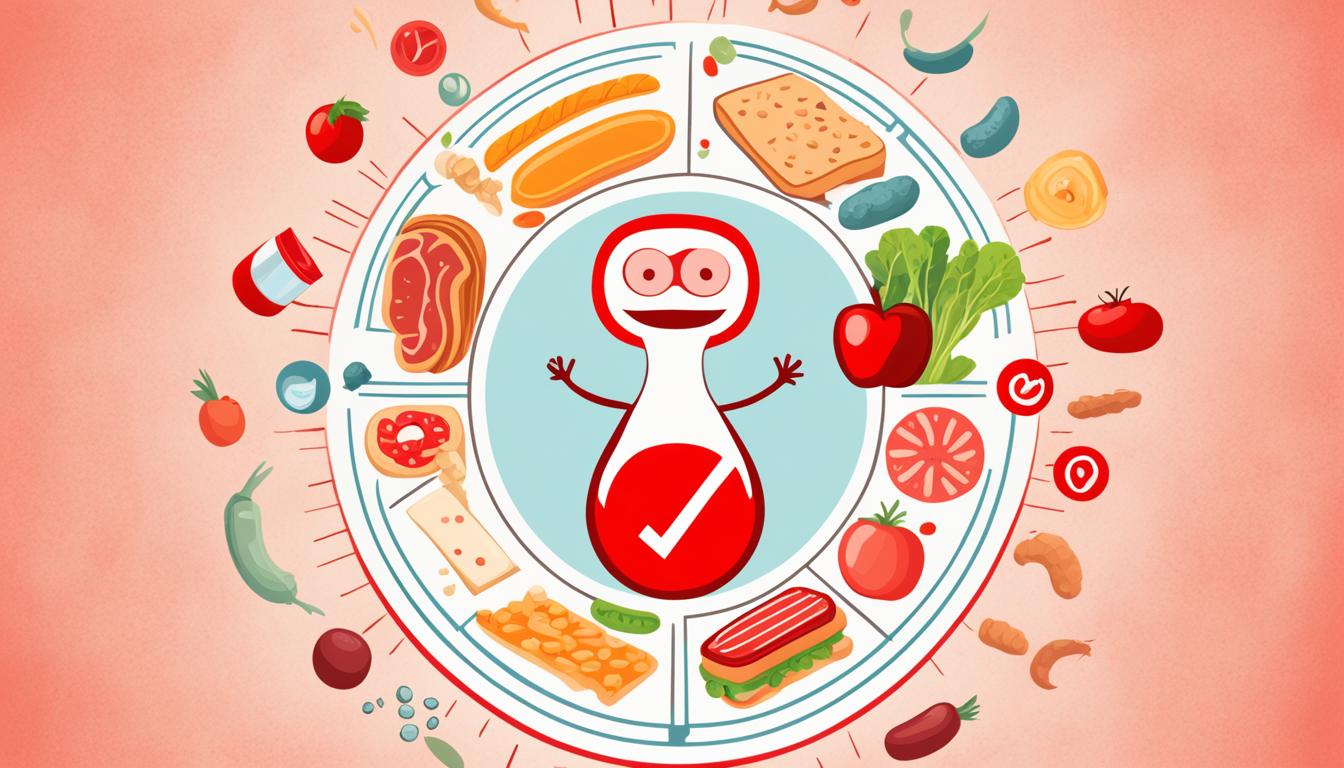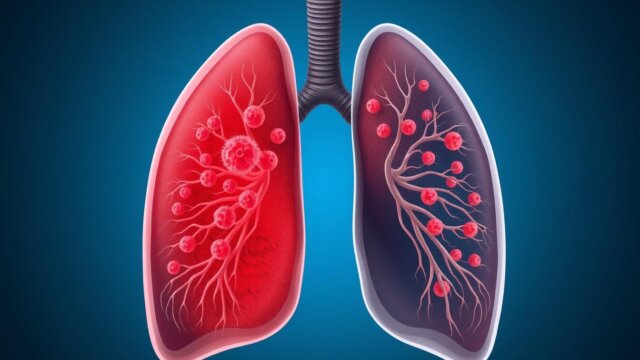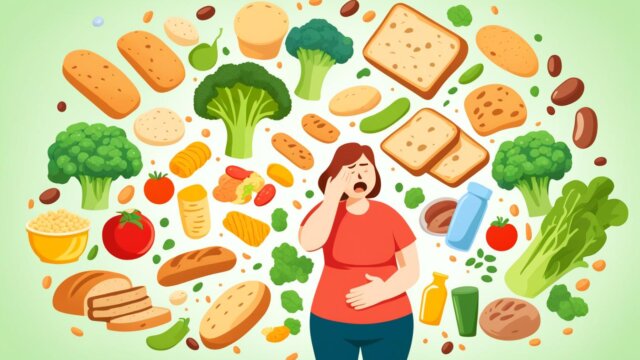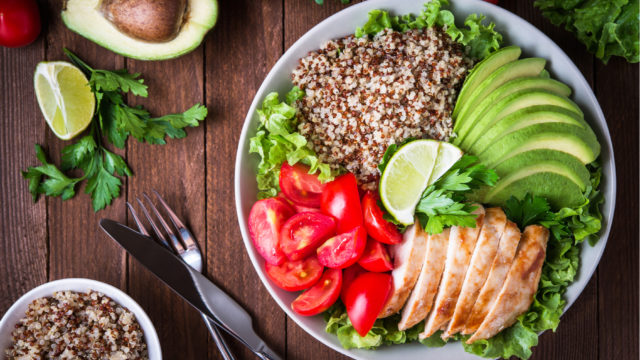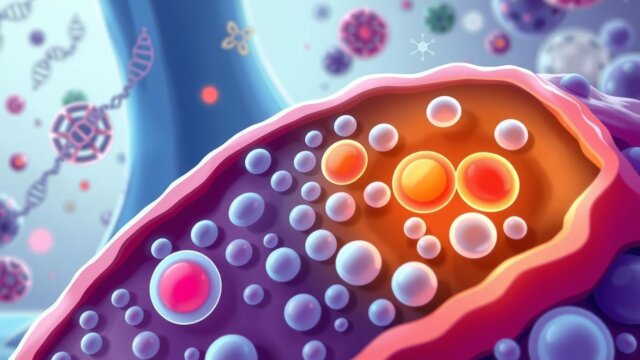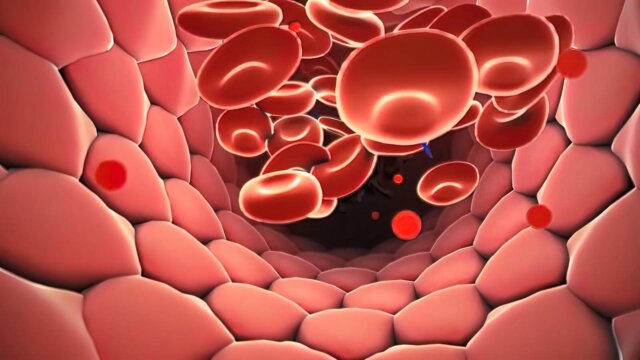FTC disclaimer: This post may contains affiliate links and we will be compensated if you click on a link and make a purchase.
Did you know your gut microbiome is super important for health? It consists of trillions of microorganisms. They live in your digestive system. The food you eat greatly affects this important world inside you.
Some foods help keep your gut healthy. Yet, others can throw it out of balance. They cause problems that might surprise you. Stay alert because the worst foods for gut health might be in your daily meals.
Key Takeaways
- Processed foods, sugary drinks, and artificial sweeteners can disrupt the gut microbiome and contribute to inflammation.
- High-fat foods, fried foods, and dairy products can also harm the delicate balance of gut bacteria.
- Excessive alcohol consumption can damage the gut lining and lead to harmful bacteria overgrowth.
- Gluten, found in wheat, barley, and rye, can disrupt the gut microbiome for some individuals.
- Embracing gut-friendly foods like fiber-rich, probiotic-rich, and prebiotic-rich options can nourish a healthy gut microbiome.
Understanding the Importance of Gut Health
The gut is crucial for our health, not just for digestion. It is linked to many aspects of our health, such as the gut-brain connection and gut and immunity.
There are around 200 different types of bacteria, viruses, and fungi in our gut. This wide range of gut microbiome helps keep our gut health in check. Having more types in our gut can lower the risk of certain diseases.
The gut is not only important for the body but also for our mind. A diverse gut may lower the chances of some mental and physical health issues.
A diet full of processed food and sugars is bad for our gut. It reduces the good bacteria in our gut. This can cause more body inflammation, increasing disease risks like cancer. Keeping our gut health good is vital. It all starts with what we eat.
Knowing about gut health and how it affects our body is key to feeling our best. By choosing the right foods and lifestyle, we can help our gut thrive. This is good for our body and mind health in many ways.
Refined Sugars: A Gut Microbiome Menace
Refined sugars are a big problem for our gut health. These are found in highly processed foods. Some examples are refined sugars, high-fructose corn syrup, sucrose, and agave syrup. Eating too much of these can lead to chronic inflammation and change our gut bacteria.
Types of Refined Sugars to Avoid
It’s important to watch how much refined sugars we eat. They’re in a lot of processed foods and drinks. Common types are table sugar, high-fructose corn syrup, sucrose, and agave syrup. These sugars quickly raise our blood sugar and insulin, which isn’t good for our gut.
Impact on Gut Bacteria and Inflammation
Too many refined sugars can hurt our gut bugs. A 2018 study showed that fructose in our diet changes the types of bacteria. It may also kick off inflammation in our digestive system. Another study with rats found similar results. They saw that giving sugars to young rats changed their gut, even if they kept their calorie intake the same.
Eating lots of sugars may make us gain weight. This can also change the variety and job of our gut bacteria. And we might not get enough good nutrients like fiber.
Fewer fibers in the diet mean fewer types of healthy bacteria in our gut. This can lead to inflammation and other health issues. It’s key to keep our gut bugs diverse and in balance for our health.
Industrial Meat: A Breeding Ground for Antibiotic Resistance
Industrial meat production is a big danger for gut health. Animals at big farms get lots of antibiotics. This is done to fight off diseases in their packed living spaces. But, it makes drug-resistant bacteria strong in their guts. These bugs can move to people’s guts too.
Antibiotics get used a lot in making chickens around the world. This overuse makes these drugs not work as well. Studies show a link between giving animals these drugs and them not working when we need them.
A kind of dangerous bacteria from beef can get to humans too. This bacteria is hard to treat. It can make medicines not work when we’re sick. This is a big worry for both human and animal health.
Meat from sheep, goat, and camel may have harmful bacteria too. These bacteria are strong against antibiotics. It shows why we need to look at how industrial meat and antibiotic resistance are connected. We must act to keep our guts healthy.
Refined Grains: Devoid of Fiber and Nutrients
Refined grains, like refined sugars, are bad for your gut. These processed carbs lose their fiber, vitamins, and minerals. This makes them bad for the good bacteria in your gut.
Common Sources of Refined Grains
Common sources include white flour, bread, and rice. Unlike whole grains, these foods don’t help your gut bacteria. They can throw off the balance of your gut.
Eating whole grains is much better for your gut. The 2015-2020 Dietary Guidelines for Americans say we should eat 6 ounces of grains every day. Half of that, or 3 ounces, should be whole grains. Whole grains can lower your risk of heart problems and diabetes.
Whole grains have a lot of good stuff like vitamins, minerals, and fiber. Refined grains don’t have these because of how they’re made. Sometimes, they add nutrients back, but it’s not the same as eating whole grains.
Eating whole grains can help you not gain weight. They’re good for your gut, cholesterol, and blood pressure. They also lower your risk for cancer and diabetes.
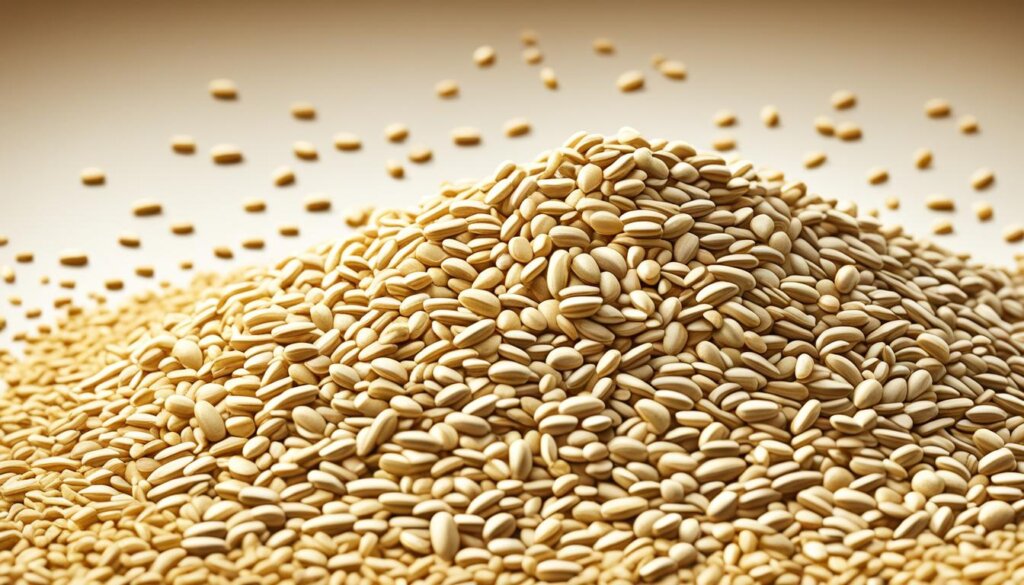
Artificial Sweeteners: A Sweet Deception for Your Gut
Many think artificial sweeteners are better than sugar, but they might not be good for your gut. Research shows they can hurt your gut health. These sweeteners decrease the variety of good gut bacteria. This can make bad bacteria grow too much. This might cause problems like inflammatory bowel disease and obesity.
They also change how bacteria break down food. This can lead to bloating and gas. And they stop the gut from making important things, like short-chain fatty acids. These are key for a healthy gut and body. They might even affect your immune system and how you burn energy.
Potential Risks of Artificial Sweeteners on Gut Health
How artificial sweeteners affect your gut can change from person to person. This is because of things like your genes, what you eat, and your health.
A study from North Carolina State University found that sucralose (Splenda) can damage gut cells. This might lead to irritable bowel syndrome (IBS).
IBS can cause a lot of symptoms. These include cramps, bloating, and stomach pain. It can also cause diarrhea, constipation, and more gas. Some artificial sweeteners have been linked to gaining weight. They can also cause blood sugar problems, harm your gut bacteria, and increase your risk of heart disease and stroke.
It’s best to choose products without artificial sweeteners. Monk fruit and stevia are natural and healthier options.
High-Fat Foods: Fueling Gut Inflammation
Eating lots of high-fat foods can harm the gut’s good bacteria and cause inflammation. A study by Harvard showed that those on an animal-based diet got a lot of Bilophila. These are germs that use bile and can lead to inflammation.
Fatty Meats and Dairy Products to Limit
High-fat meats and dairy are bad for our stomachs. They speed up Crohn’s disease-like problems in mice. This happens even if the mice are not overweight.
Eating a lot of fat increases gut problems and alters the gut bacteria. This is seen in fat around the stomach and bad metabolism in mice that are fed fat-rich diets. To keep your gut healthy, limit fatty meats and choose lean options instead.
Also, full-fat cheese and cream can hurt the balance in your gut. A study from 2019 in the Gut journal showed that eating too many high-fat foods changes the gut germs. This puts you more at risk for long-term illnesses. For a healthy gut, pick lower-fat dairy or plant-based foods.
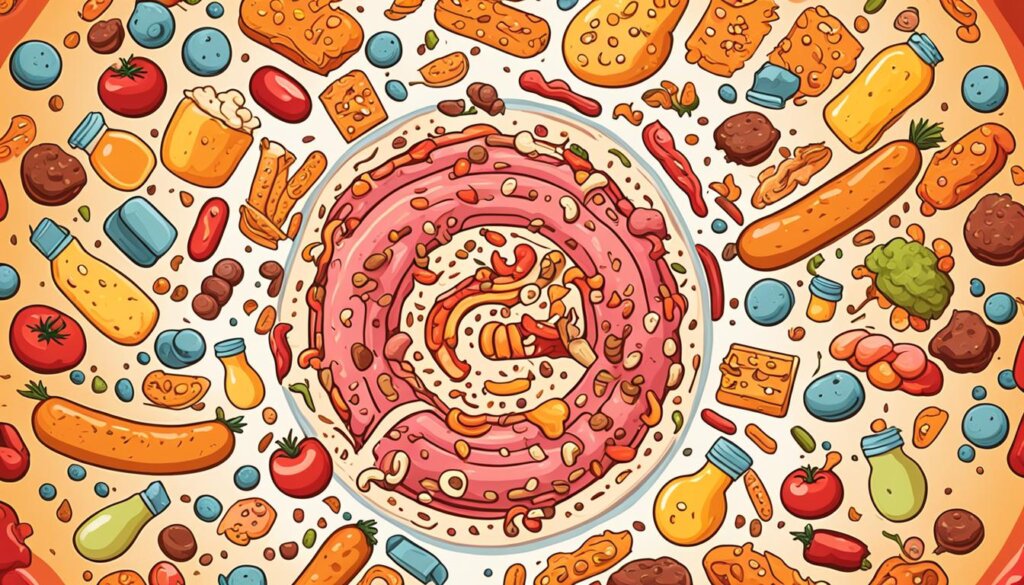
Cutting back on high-fat foods, like fatty meats and full-fat dairy, helps lower gut inflammation. It also keeps your stomach’s good bacteria in check.
Fried Foods: A Double Whammy for Your Gut
Fried foods are not good for your gut health. They are filled with bad fats. Also, cooking them produces bad stuff that can hurt your gut and cause swelling. Eating fried meals every day makes you gain weight. It also makes you sleepy and can give you skin problems. It can even cause big issues like diabetes, cancer, and obesity.
They often use oils with lots of bad fat (omega-6). These oils don’t have much good fat (omega-3). The perfect amount of these fats should be equal.
But, most diets today are way off, with too much omega-6. Fried foods from refined flours make your blood sugar jump. This quick mix of high fat and carbs isn’t good for your blood sugar or swelling.
Fried foods cause problems like tummy pain, feeling too full, and acid coming up. They are hard for your stomach to digest. It’s best not to have fried foods every day. Try to eat them only twice a week. This is good for keeping a healthy weight.
When you do eat fried foods, how much you have is important. You should eat a portion about the size of your palm.
It’s better to start the day with healthy food, not fried stuff. Choose foods like veggies, whole grains, and protein. Using oil again at high heat can make it bad for you. So, it’s best not to reuse oil. Throw it away once it looks different. Baking, broiling, and grilling are better ways to cook. They use less oil and can taste great.
Alcohol: A Delicate Balance for Gut Health
Drinking alcohol can affect gut health in complex ways. Some alcohols, like red wine, are good for the gut if taken in moderation. But too much can harm your gut.
Moderation is Key
The NIAAA says women should limit to 3 drinks a day and only 7 a week. Men shouldn’t have more than 4 drinks a day or 14 in a week. Binge drinking is drinking a lot quickly, which is very bad for the gut. Drinking heavily or binge drinking often can mess up the good bacteria in your gut.
Potential Alternatives to Alcohol
More people drink during the holidays, but there are healthy choices too. Non-alcoholic drinks with polyphenols can help your gut. Also, taking a break from alcohol for 3 weeks can really improve your gut health.
In a Dry January survey, everyone felt better and more in control after not drinking for a month.
Enjoying alcohol in moderation is okay. But knowing the effects on your gut and choosing healthier options is smart. This way, you can help your gut’s health thrive.

Worst Foods for Gut Health
Maintaining a healthy gut microbiome is key for good health. It affects many parts of your body. But, some foods can mess with your gut’s balance. This can cause digestion problems and harm your health over time. Here are some foods that are bad for your gut:
Processed Foods
Highly processed foods are full of stuff that is bad for you. This includes additives, preservatives, and unhealthy fats. Packaged snacks, fast food, and refined carbs are some examples. They can cause inflammation and throw off your gut’s bacteria balance. This isn’t good for your health.
Sugary Drinks
Sugary drinks, like soda, sports drinks, and juices, are not good for your gut. They are packed with refined sugars. These sugars mess with your gut’s bacterial balance. This can cause inflammation and digestive troubles.
Artificial Sweeteners
Artificial sweeteners are not as good as they seem. Types like saccharin, sucralose, and aspartame can hurt your gut. These fake sugars can change the balance and variety of good gut bacteria. This may lead to digestive issues and other health problems.
High-Fat Foods
Eating too many high-fat foods is not great for your gut. This includes fried foods, fatty meats, and high-fat dairy. These can cause inflammation and disturb your gut’s balance. It’s not good for your health.
Choosing better foods can help your gut be healthier. This can make your whole body feel better. Next, we will look at foods that are good for your gut. Stay tuned for tips on how to have a happy gut!
Gut-Friendly Foods to Embrace
Avoiding bad foods is key for gut health. But, embracing good foods is just as vital. Include prebiotics, probiotics, and foods rich in fiber. They keep your gut flora healthy and varied.
Prebiotic-Rich Foods
Prebiotics are like fuel for the good bacteria in your gut. Foods high in prebiotics are great. Some examples are Jerusalem artichokes, garlic, onions, and bananas. They boost short-chain fatty acids and nourish the good bacteria. Jerusalem artichokes have 2.4 g of fiber in 1 cup. Leeks, another good option, give you 1.6 grams of fiber and 54 calories in a cup.
Probiotic-Rich Foods
Probiotic foods are filled with beneficial live cultures. Some good options are yogurt, kefir, sauerkraut, and kombucha. Sauerkraut, for example, has 4 grams of fiber in a cup. “Live & Active Cultures” yogurt has about 100 million probiotic cultures per gram when made. Kombucha has very low alcohol, usually about 0.5% ABV. But, homemade kombucha can be 2%-3% ABV.
Fiber-Rich Foods
Eating foods high in fiber is great for your gut. Aim for 18–38 grams of fiber daily to improve gut health. Fruits, vegetables, whole grains, legumes, and nuts are excellent sources of fiber. They feed the good bacteria in your gut.
Adding prebiotics, probiotics, and fiber to your diet is smart. They build a strong and varied gut biome. This helps you stay well.

The Gut-Brain Connection
The gut and the brain are closely connected. New research shows how important gut health is for mental health. The gut has about 500 million neurons. They are linked to the brain by our nervous system. This system lets the gut and brain talk to each other. It affects our mood, thinking, and how we feel mentally.
Microbes in our gut help make chemicals like serotonin and dopamine. These chemicals regulate our mood and actions. A bad balance in gut microbes can cause mental health problems. This includes feeling depressed, anxious, or even having brain issues.
Probiotics, good bacteria found in fermented foods, can lift our spirits. They help lower stress, make more GABA, and ease up problems like IBS, anxiety, and feeling down.
The link between our gut and brain works both ways. Our brain can shape our gut’s bacteria colony. Things like stress, what we eat, and the medicine we take mess with this colony. And that affects how we feel mentally. Keeping our gut healthy and even is super important. It supports our mental health too.
Gut Health and Chronic Diseases
The way our gut bacteria act is tied to many chronic illnesses. This is most true for inflammatory bowel diseases (IBDs) and metabolic disorders.
Inflammatory Bowel Diseases
Crohn’s disease and ulcerative colitis are part of IBDs. These diseases connect strongly to problems in our gut bacteria. People with these issues can have ongoing swelling in their digestive tract. A diet and lifestyle change can help fix this gut imbalance. This step is vital for handling such conditions.
Metabolic Disorders
The health of our gut bacteria also affects our metabolism. If these bacteria are out of whack, it could lead to type 2 diabetes, obesity, and liver issues. Eating lots of processed foods and sugars can mess up our gut. This can cause inflammation and metabolic problems.
Eating well can keep our gut bugs happy and diverse. This is key for good metabolic health.
Knowing how good gut health can avoid chronic diseases is valuable. It means we can make choices that help our gut and protect us from these tough sicknesses.
Gut Microbiome and Immune Function
The gut microbiome is key for our immune system. Surprisingly, most of our immune cells live in the gut. They guard us from harmful germs.
This connection is both deep and active. Products from gut germs, like short-chain fatty acids, affect our immune system. They can keep our body from being too inflamed.
When our gut microbiome is off balance, issues can start. This can lead to problems like tummy troubles, where the body attacks itself, or trouble with how we process food.
To keep our immune system strong, a healthy mix of gut germs is crucial. What we eat, how we feel, and the way we live all play a part. They can change how many different germs live in our gut. And this affects our health a lot.
Knowing how important the gut microbiome is helps us choose better. We can pick things that help our gut thrive. This makes our body’s defense system better.
Lifestyle Factors Affecting Gut Health
Diet is key in keeping our gut healthy. But, how we live also matters a lot. This includes being active, handling stress well, and eating right.
Exercise and Physical Activity
Moving our body often helps our gut, too. Many studies show that people who work out a lot have more good bacteria. This is because exercise boosts things like blood flow and the immune system. These help keep our gut bugs happy.
Stress Management
Feeling stressed all the time is bad for our gut friends. It can mess up the balance in our gut. Plus, it lowers the variety of good bacteria we have. Doing things like meditation or yoga can calm our stress. This, in turn, is good for our gut health.
So, it’s vital to look at our diet and lifestyle together. This way, we can help our gut do its best and feel good overall.
Conclusion
Your gut health affects your whole body. It impacts how well you digest food, process energy, fight off illnesses, and even feel mentally. To keep your gut happy, avoid bad foods like processed snacks, sugary drinks, fake sugars, and too much alcohol.
Eating foods full of prebiotics, probiotics, and fiber feeds the good bacteria in your gut. This helps keep your gut diverse and balanced. Living healthy by working out, managing stress, and sleeping enough also helps your gut.
Gut health taps into your well-being in big ways. It affects how you digest, stay well, cope with stress, and avoid diseases. By caring for your gut, you’re taking a big leap towards your overall health and happiness.
FAQ
What is the importance of gut health?
The gut has trillions of microorganisms and plays a key role in our health. It’s not just for digesting food. It affects our immune system, mental health, and how we fight diseases.
What are the worst foods for gut health?
The worst foods are processed foods, sugary drinks, and high-fat options. Also, limit how much fried food and alcohol you have.
How do refined sugars impact the gut microbiome?
Refined sugars are bad for your gut. They can throw off the balance of good and bad bacteria. This can lead to inflammation in your body.
How does industrial meat production affect gut health?
Large-scale meat farming harms gut health. Animals get lots of antibiotics. This means we can get drug-resistant bacteria, making us sick.
What are the issues with refined grains?
Refined grains hurt your gut too. They are lacking in fiber, vitamins, and minerals. Your gut bacteria need these to be healthy.
How do artificial sweeteners impact gut health?
Artificial sweeteners may not be as good as we think. They could lead to gut issues, inflammation, and trouble with blood sugar.
What are the effects of high-fat foods on the gut microbiome?
Too much fat can cause trouble in your gut. A study shows it can lead to more bad bacteria that cause inflammation.
How do fried foods impact gut health?
Fried foods aren’t good for the gut. They have bad fats and can make harmful compounds while cooking. These can hurt your gut.
How does alcohol affect the gut microbiome?
Some alcohol, like red wine, in a little amount, might be good for the gut. But drinking too much isn’t good for it.
What are some gut-friendly foods to embrace?
Eat foods that help your gut, like garlic, onions, and bananas. Also, yogurt, kefir, and fiber-rich fruits and veggies are great choices.
How is gut health connected to mental well-being?
The gut and brain are very connected. New studies show gut health greatly affects mental health and can lead to diseases.
How does the gut microbiome support immune function?
Your gut helps your immune system a lot. Most of your body’s immune cells live there. They protect you from getting sick.
What lifestyle factors can impact gut health?
Good lifestyle choices, like eating well, help your gut. So does exercising and managing stress.
